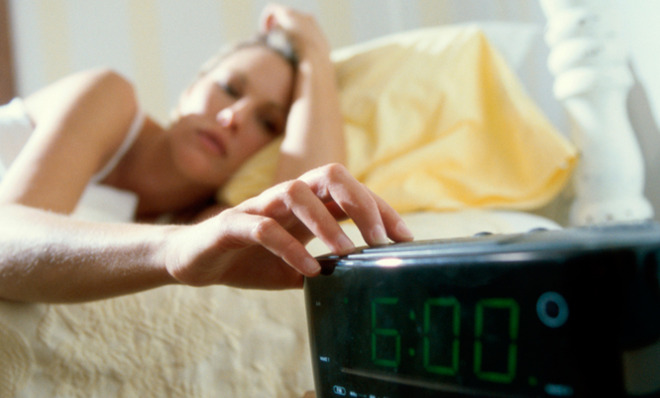Your snooze button is probably why you feel cruddy all day
It's messing with your chemistry

A free daily email with the biggest news stories of the day – and the best features from TheWeek.com
You are now subscribed
Your newsletter sign-up was successful
Sleep is great. We all love it. We all need more of it. And it isn't exactly breaking news that a lack of it wreaks havoc on our bodies in all sorts of strange ways.
But the quality of sleep we're getting is important, too. It's why hitting the snooze button every morning to sneak in an extra 30 to 40 minutes of shut-eye probably isn't doing us any favors, either.
In a new essay for Pacific Standard called "The Devil Is in Your Snooze Button," Casey N. Cep puts the evil button in a historical context, suggesting that people were actually more productive before the advent of the "Snooz-Alarm" in the mid-20th century.
The Week
Escape your echo chamber. Get the facts behind the news, plus analysis from multiple perspectives.

Sign up for The Week's Free Newsletters
From our morning news briefing to a weekly Good News Newsletter, get the best of The Week delivered directly to your inbox.
From our morning news briefing to a weekly Good News Newsletter, get the best of The Week delivered directly to your inbox.
Since 1956, we have been confusing snooze for sleep, sacrificing our waking life nine minutes at a time. Not only do we delay the start of our days, but we compromise the very sleep we are trying to steal. The healthy, continuous sleep cycles we need are thoroughly disrupted by the snooze. When we hear the first sound of the alarm, our bodies release adrenaline and cortisol, hormones that wake us, interrupting our natural sleep cycle to make us alert.
Surrendering to the temptation of the snooze erases that hormonal surge: Our bodies try to re-enter the deeper periods of sleep. Only those restorative levels of sleep take a lot longer than nine minutes to enter, so every snooze confuses our bodies even more. [Pacific Standard]
In fact, Cep argues, that "patchy, interrupted sleep of snooze is worse than no sleep at all." Your circadian rhythms are thrown out of whack.
That explains why you often feel blissfully awake when you get up naturally right before your alarm goes off, but groggy and disoriented when you sputter to life a few moments later.
Also, you'll oftentimes feel more tired. Your work suffers. You (obviously) suffer. And you're probably not as pleasant to be around when you're a coffee-guzzling zombie.
Earlier this year, ASAP Science explained why alarm clocks in general are all sorts of bad news for your body's biological clock. It's worth watching if you haven't already. (H/T: Lifehacker)
A free daily email with the biggest news stories of the day – and the best features from TheWeek.com

So. What to do?
Clinical research shows that sneaking in a quick restorative nap while at work might cure what ails you, as long as you do so for 20-30 minutes, and no more.
Believe it or not, there are also apps that might help you chemically right yourself, sleep-wise. The New York Times vouches for an iOS alarm clock app called Sleep Cycle. (There is a similar app for Android called Sleepbot.) Basically, you set a time window you would like to wake up in, and place your phone under your pillow. The app then taps your phone's sensor to figure out what sleep phase you're in based on how much you're tossing and turning. When that 30-minute window arrives, it will gently ring when it thinks you're sleeping most lightly, and give you a neat chart of your sleeping patterns. (I used the app; it worked for me. A bunch of Redditors seem to love it, too.)
Of course, the absolute best advice to de-zombifying your daily existence is to simply go to sleep earlier, which is easier said than done. Trying to wean yourself off the snooze button, though, might not be a bad place to start for a time-strapped do-gooder such as yourself.